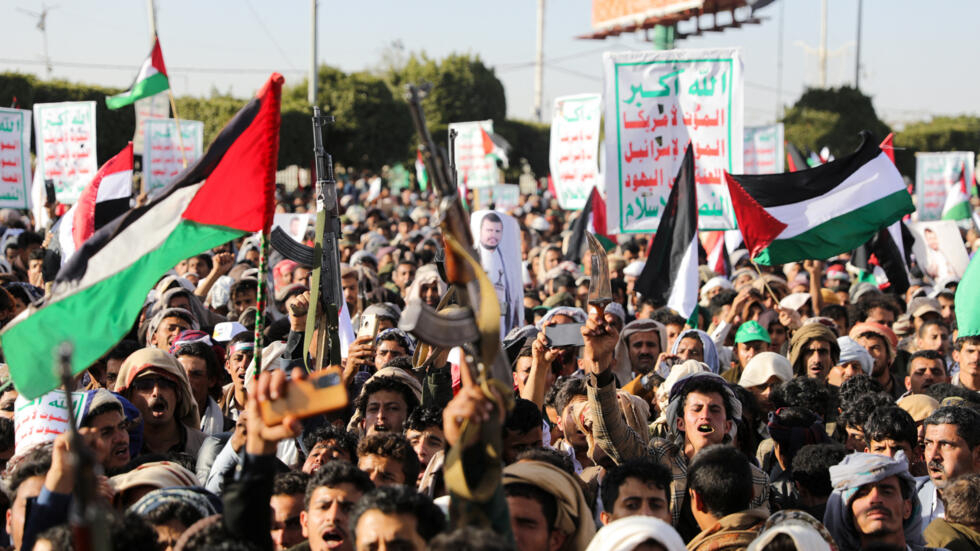The United States and the United Kingdom conducted a series of strikes on 12 January Yemen targeting the Iran-aligned Houthi rebels, who have been attacking international shipping in the Red Sea.
The Houthis, supporters of the Palestinian group Hamas, condemned the attacks as “barbaric” and warned of continued targeting of ships heading towards Israel.
The Houthis claim that five of their members were killed and six others injured in the military action led by the US and UK. According to military spokesperson for the Houthi armed forces Yahya Saree, a total of 73 US-UK strikes took place. In a televised broadcast, he denounced the overnight attacks as a “blatant act of aggression.”
The airstrikes occurred shortly after Iran seized a tanker en route to Turkey off the coast of Oman, escalating tensions. The Gulf of Oman, where the tanker was captured, is in close proximity to the crucial Strait of Hormuz, a vital oil shipping route where over 20 million barrels move daily, constituting approximately a fifth of global consumption.
Since mid-November, 2023, the Houthi attacks on ships in the Red Sea have already disrupted trade and fuel flow.
US and UK forces conducted airstrikes on over a dozen sites targeting locations in Sanaa, the Red Sea port of Hudaydah, Dhamar, and the north-western Houthi stronghold of Saada. A Houthi leader cautioned that the US and UK would soon realize the strikes were “the greatest folly in their history.”
Iran, a supporter of the Houthis, denounced the strikes as a clear violation of Yemen’s territorial integrity. Iraq’s prime minister’s office expressed concern that the West is expanding the conflict between Israel and Hamas into the region.
Moreover, the Saudi foreign ministry urged Washington and its allies to avoid escalation. US President Joe Biden warned of potential further measures to “protect our people and the free flow of international commerce,” while UK Prime Minister Rishi Sunak deemed the strikes “necessary and proportionate.”
The Houthis, an armed group from a Zaidi Shia Muslim sub-sect in Yemen, align themselves with the Iranian-led “axis of resistance” against Israel, the US, and the West, similar to Hamas and Hezbollah.
The Houthi-controlled areas, including Sanaa and northern Yemen, extend to the Red Sea coastline.
Following the Israel-Hamas war, the Houthis began attacking ships in the Red Sea headed for Israel, causing a significant threat to the major trade route. This situation led to a cessation of sailing in the region by major shipping companies, resulting in a tenfold increase in insurance costs since early December.







Comments (2)
[…] response to increased security concerns following US and UK airstrikes in Yemen, Qatar halted LNG shipments through the Bab el-Mandeb Strait on Monday, 15 January, […]
[…] response to increased security concerns following US and UK airstrikes in Yemen, Qatar halted LNG shipments through the Bab el-Mandeb Strait on Monday, 15 January, […]